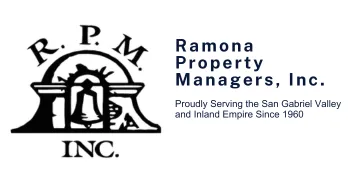Management Matters
Expert tips, tricks, and techniques for effective property management."
Property Management

10 Essential Tips for First-Time Landlords
10 Essential Tips for First-Time Landlords: A Guide to Handling Leases, Tenant Screening, and Property Maintenance
Becoming a landlord can be an exciting venture, offering the potential for steady income and long-term financial growth. However, managing a rental property is no small task, especially if you’re new to the game. Below, we’ve outlined 10 essential tips for first-time landlords to help you successfully manage leases, screen tenants, and maintain your property.
1. Create a Clear and Comprehensive Lease Agreement
Your lease agreement is the foundation of your landlord-tenant relationship. It should be clear, detailed, and legally compliant, outlining the terms of tenancy, rent, security deposits, and maintenance responsibilities.
Helpful Resource: NOLO: How to Write a Lease Agreement provides guidelines on what to include in your lease.
2. Understand Fair Housing Laws
As a landlord, you must comply with federal and state Fair Housing laws. These laws protect tenants from discrimination based on race, religion, gender, disability, and other protected categories. Violating these laws can lead to serious legal consequences, so it’s important to be well-informed.
Helpful Resource: The U.S. Department of Housing and Urban Development (HUD) offers comprehensive information on Fair Housing regulations.
3. Screen Tenants Thoroughly
Proper tenant screening is key to avoiding future issues. Check potential tenants' credit, criminal history, employment status, and references. You want tenants who are financially stable and have a positive rental history.
Helpful Resource: Learn more about tenant screening best practices through TransUnion SmartMove, which offers credit and background checks for landlords.
4. Set Competitive Rental Rates
Setting the right rental price ensures you attract quality tenants and avoid long vacancies. Research similar properties in your area to determine a competitive rate, considering factors like location, property condition, and amenities.
Helpful Resource: Use tools like Rentometer to compare rental rates in your area.
5. Maintain Open and Transparent Communication
Good communication with your tenants can help foster a positive relationship. Ensure they know how to reach you or your property management company in case of emergencies, maintenance requests, or lease questions.
6. Stay on Top of Maintenance and Repairs
Regular maintenance not only keeps your property in good condition but also helps you avoid costly repairs down the road. Promptly address tenant repair requests to maintain a safe and habitable living environment.
Helpful Resource: Zillow Rental Manager offers tips for keeping up with rental property maintenance.
7. Establish a Reliable Rent Collection System
A consistent rent collection system ensures timely payments and financial stability. You can use online rent payment services or property management software to streamline the process.
Helpful Resource: Consider using platforms like AppFolio or Buildium for rent collection and property management tasks.
8. Get the Right Insurance
Standard homeowner's insurance doesn't cover rental properties. You'll need landlord insurance, which protects you against property damage, liability claims, and lost rental income.
Helpful Resource: The National Association of Insurance Commissioners (NAIC) provides helpful information on choosing the right insurance for your rental property.
9. Know When to Enforce Lease Terms
While it’s essential to foster good relationships with tenants, it’s equally important to enforce the terms of the lease. Address violations like late rent payments or unauthorized pets promptly to prevent future issues.
10. Consider Hiring a Property Management Company
If you’re managing multiple properties or don’t have the time to handle day-to-day tasks, hiring a property management company may be worth considering. A professional team can handle tenant screening, rent collection, maintenance, and more, making your life easier.
Helpful Resource: Learn more about the benefits of property management through the National Association of Residential Property Managers (NARPM).
Tenant Relations

10 Essential Tips for First-Time Landlords
10 Essential Tips for First-Time Landlords: A Guide to Handling Leases, Tenant Screening, and Property Maintenance
Becoming a landlord can be an exciting venture, offering the potential for steady income and long-term financial growth. However, managing a rental property is no small task, especially if you’re new to the game. Below, we’ve outlined 10 essential tips for first-time landlords to help you successfully manage leases, screen tenants, and maintain your property.
1. Create a Clear and Comprehensive Lease Agreement
Your lease agreement is the foundation of your landlord-tenant relationship. It should be clear, detailed, and legally compliant, outlining the terms of tenancy, rent, security deposits, and maintenance responsibilities.
Helpful Resource: NOLO: How to Write a Lease Agreement provides guidelines on what to include in your lease.
2. Understand Fair Housing Laws
As a landlord, you must comply with federal and state Fair Housing laws. These laws protect tenants from discrimination based on race, religion, gender, disability, and other protected categories. Violating these laws can lead to serious legal consequences, so it’s important to be well-informed.
Helpful Resource: The U.S. Department of Housing and Urban Development (HUD) offers comprehensive information on Fair Housing regulations.
3. Screen Tenants Thoroughly
Proper tenant screening is key to avoiding future issues. Check potential tenants' credit, criminal history, employment status, and references. You want tenants who are financially stable and have a positive rental history.
Helpful Resource: Learn more about tenant screening best practices through TransUnion SmartMove, which offers credit and background checks for landlords.
4. Set Competitive Rental Rates
Setting the right rental price ensures you attract quality tenants and avoid long vacancies. Research similar properties in your area to determine a competitive rate, considering factors like location, property condition, and amenities.
Helpful Resource: Use tools like Rentometer to compare rental rates in your area.
5. Maintain Open and Transparent Communication
Good communication with your tenants can help foster a positive relationship. Ensure they know how to reach you or your property management company in case of emergencies, maintenance requests, or lease questions.
6. Stay on Top of Maintenance and Repairs
Regular maintenance not only keeps your property in good condition but also helps you avoid costly repairs down the road. Promptly address tenant repair requests to maintain a safe and habitable living environment.
Helpful Resource: Zillow Rental Manager offers tips for keeping up with rental property maintenance.
7. Establish a Reliable Rent Collection System
A consistent rent collection system ensures timely payments and financial stability. You can use online rent payment services or property management software to streamline the process.
Helpful Resource: Consider using platforms like AppFolio or Buildium for rent collection and property management tasks.
8. Get the Right Insurance
Standard homeowner's insurance doesn't cover rental properties. You'll need landlord insurance, which protects you against property damage, liability claims, and lost rental income.
Helpful Resource: The National Association of Insurance Commissioners (NAIC) provides helpful information on choosing the right insurance for your rental property.
9. Know When to Enforce Lease Terms
While it’s essential to foster good relationships with tenants, it’s equally important to enforce the terms of the lease. Address violations like late rent payments or unauthorized pets promptly to prevent future issues.
10. Consider Hiring a Property Management Company
If you’re managing multiple properties or don’t have the time to handle day-to-day tasks, hiring a property management company may be worth considering. A professional team can handle tenant screening, rent collection, maintenance, and more, making your life easier.
Helpful Resource: Learn more about the benefits of property management through the National Association of Residential Property Managers (NARPM).
Compliance

10 Essential Tips for First-Time Landlords
10 Essential Tips for First-Time Landlords: A Guide to Handling Leases, Tenant Screening, and Property Maintenance
Becoming a landlord can be an exciting venture, offering the potential for steady income and long-term financial growth. However, managing a rental property is no small task, especially if you’re new to the game. Below, we’ve outlined 10 essential tips for first-time landlords to help you successfully manage leases, screen tenants, and maintain your property.
1. Create a Clear and Comprehensive Lease Agreement
Your lease agreement is the foundation of your landlord-tenant relationship. It should be clear, detailed, and legally compliant, outlining the terms of tenancy, rent, security deposits, and maintenance responsibilities.
Helpful Resource: NOLO: How to Write a Lease Agreement provides guidelines on what to include in your lease.
2. Understand Fair Housing Laws
As a landlord, you must comply with federal and state Fair Housing laws. These laws protect tenants from discrimination based on race, religion, gender, disability, and other protected categories. Violating these laws can lead to serious legal consequences, so it’s important to be well-informed.
Helpful Resource: The U.S. Department of Housing and Urban Development (HUD) offers comprehensive information on Fair Housing regulations.
3. Screen Tenants Thoroughly
Proper tenant screening is key to avoiding future issues. Check potential tenants' credit, criminal history, employment status, and references. You want tenants who are financially stable and have a positive rental history.
Helpful Resource: Learn more about tenant screening best practices through TransUnion SmartMove, which offers credit and background checks for landlords.
4. Set Competitive Rental Rates
Setting the right rental price ensures you attract quality tenants and avoid long vacancies. Research similar properties in your area to determine a competitive rate, considering factors like location, property condition, and amenities.
Helpful Resource: Use tools like Rentometer to compare rental rates in your area.
5. Maintain Open and Transparent Communication
Good communication with your tenants can help foster a positive relationship. Ensure they know how to reach you or your property management company in case of emergencies, maintenance requests, or lease questions.
6. Stay on Top of Maintenance and Repairs
Regular maintenance not only keeps your property in good condition but also helps you avoid costly repairs down the road. Promptly address tenant repair requests to maintain a safe and habitable living environment.
Helpful Resource: Zillow Rental Manager offers tips for keeping up with rental property maintenance.
7. Establish a Reliable Rent Collection System
A consistent rent collection system ensures timely payments and financial stability. You can use online rent payment services or property management software to streamline the process.
Helpful Resource: Consider using platforms like AppFolio or Buildium for rent collection and property management tasks.
8. Get the Right Insurance
Standard homeowner's insurance doesn't cover rental properties. You'll need landlord insurance, which protects you against property damage, liability claims, and lost rental income.
Helpful Resource: The National Association of Insurance Commissioners (NAIC) provides helpful information on choosing the right insurance for your rental property.
9. Know When to Enforce Lease Terms
While it’s essential to foster good relationships with tenants, it’s equally important to enforce the terms of the lease. Address violations like late rent payments or unauthorized pets promptly to prevent future issues.
10. Consider Hiring a Property Management Company
If you’re managing multiple properties or don’t have the time to handle day-to-day tasks, hiring a property management company may be worth considering. A professional team can handle tenant screening, rent collection, maintenance, and more, making your life easier.
Helpful Resource: Learn more about the benefits of property management through the National Association of Residential Property Managers (NARPM).
Compliance

10 Essential Tips for First-Time Landlords
10 Essential Tips for First-Time Landlords: A Guide to Handling Leases, Tenant Screening, and Property Maintenance
Becoming a landlord can be an exciting venture, offering the potential for steady income and long-term financial growth. However, managing a rental property is no small task, especially if you’re new to the game. Below, we’ve outlined 10 essential tips for first-time landlords to help you successfully manage leases, screen tenants, and maintain your property.
1. Create a Clear and Comprehensive Lease Agreement
Your lease agreement is the foundation of your landlord-tenant relationship. It should be clear, detailed, and legally compliant, outlining the terms of tenancy, rent, security deposits, and maintenance responsibilities.
Helpful Resource: NOLO: How to Write a Lease Agreement provides guidelines on what to include in your lease.
2. Understand Fair Housing Laws
As a landlord, you must comply with federal and state Fair Housing laws. These laws protect tenants from discrimination based on race, religion, gender, disability, and other protected categories. Violating these laws can lead to serious legal consequences, so it’s important to be well-informed.
Helpful Resource: The U.S. Department of Housing and Urban Development (HUD) offers comprehensive information on Fair Housing regulations.
3. Screen Tenants Thoroughly
Proper tenant screening is key to avoiding future issues. Check potential tenants' credit, criminal history, employment status, and references. You want tenants who are financially stable and have a positive rental history.
Helpful Resource: Learn more about tenant screening best practices through TransUnion SmartMove, which offers credit and background checks for landlords.
4. Set Competitive Rental Rates
Setting the right rental price ensures you attract quality tenants and avoid long vacancies. Research similar properties in your area to determine a competitive rate, considering factors like location, property condition, and amenities.
Helpful Resource: Use tools like Rentometer to compare rental rates in your area.
5. Maintain Open and Transparent Communication
Good communication with your tenants can help foster a positive relationship. Ensure they know how to reach you or your property management company in case of emergencies, maintenance requests, or lease questions.
6. Stay on Top of Maintenance and Repairs
Regular maintenance not only keeps your property in good condition but also helps you avoid costly repairs down the road. Promptly address tenant repair requests to maintain a safe and habitable living environment.
Helpful Resource: Zillow Rental Manager offers tips for keeping up with rental property maintenance.
7. Establish a Reliable Rent Collection System
A consistent rent collection system ensures timely payments and financial stability. You can use online rent payment services or property management software to streamline the process.
Helpful Resource: Consider using platforms like AppFolio or Buildium for rent collection and property management tasks.
8. Get the Right Insurance
Standard homeowner's insurance doesn't cover rental properties. You'll need landlord insurance, which protects you against property damage, liability claims, and lost rental income.
Helpful Resource: The National Association of Insurance Commissioners (NAIC) provides helpful information on choosing the right insurance for your rental property.
9. Know When to Enforce Lease Terms
While it’s essential to foster good relationships with tenants, it’s equally important to enforce the terms of the lease. Address violations like late rent payments or unauthorized pets promptly to prevent future issues.
10. Consider Hiring a Property Management Company
If you’re managing multiple properties or don’t have the time to handle day-to-day tasks, hiring a property management company may be worth considering. A professional team can handle tenant screening, rent collection, maintenance, and more, making your life easier.
Helpful Resource: Learn more about the benefits of property management through the National Association of Residential Property Managers (NARPM).
Real Estate Services

10 Essential Tips for First-Time Landlords
10 Essential Tips for First-Time Landlords: A Guide to Handling Leases, Tenant Screening, and Property Maintenance
Becoming a landlord can be an exciting venture, offering the potential for steady income and long-term financial growth. However, managing a rental property is no small task, especially if you’re new to the game. Below, we’ve outlined 10 essential tips for first-time landlords to help you successfully manage leases, screen tenants, and maintain your property.
1. Create a Clear and Comprehensive Lease Agreement
Your lease agreement is the foundation of your landlord-tenant relationship. It should be clear, detailed, and legally compliant, outlining the terms of tenancy, rent, security deposits, and maintenance responsibilities.
Helpful Resource: NOLO: How to Write a Lease Agreement provides guidelines on what to include in your lease.
2. Understand Fair Housing Laws
As a landlord, you must comply with federal and state Fair Housing laws. These laws protect tenants from discrimination based on race, religion, gender, disability, and other protected categories. Violating these laws can lead to serious legal consequences, so it’s important to be well-informed.
Helpful Resource: The U.S. Department of Housing and Urban Development (HUD) offers comprehensive information on Fair Housing regulations.
3. Screen Tenants Thoroughly
Proper tenant screening is key to avoiding future issues. Check potential tenants' credit, criminal history, employment status, and references. You want tenants who are financially stable and have a positive rental history.
Helpful Resource: Learn more about tenant screening best practices through TransUnion SmartMove, which offers credit and background checks for landlords.
4. Set Competitive Rental Rates
Setting the right rental price ensures you attract quality tenants and avoid long vacancies. Research similar properties in your area to determine a competitive rate, considering factors like location, property condition, and amenities.
Helpful Resource: Use tools like Rentometer to compare rental rates in your area.
5. Maintain Open and Transparent Communication
Good communication with your tenants can help foster a positive relationship. Ensure they know how to reach you or your property management company in case of emergencies, maintenance requests, or lease questions.
6. Stay on Top of Maintenance and Repairs
Regular maintenance not only keeps your property in good condition but also helps you avoid costly repairs down the road. Promptly address tenant repair requests to maintain a safe and habitable living environment.
Helpful Resource: Zillow Rental Manager offers tips for keeping up with rental property maintenance.
7. Establish a Reliable Rent Collection System
A consistent rent collection system ensures timely payments and financial stability. You can use online rent payment services or property management software to streamline the process.
Helpful Resource: Consider using platforms like AppFolio or Buildium for rent collection and property management tasks.
8. Get the Right Insurance
Standard homeowner's insurance doesn't cover rental properties. You'll need landlord insurance, which protects you against property damage, liability claims, and lost rental income.
Helpful Resource: The National Association of Insurance Commissioners (NAIC) provides helpful information on choosing the right insurance for your rental property.
9. Know When to Enforce Lease Terms
While it’s essential to foster good relationships with tenants, it’s equally important to enforce the terms of the lease. Address violations like late rent payments or unauthorized pets promptly to prevent future issues.
10. Consider Hiring a Property Management Company
If you’re managing multiple properties or don’t have the time to handle day-to-day tasks, hiring a property management company may be worth considering. A professional team can handle tenant screening, rent collection, maintenance, and more, making your life easier.
Helpful Resource: Learn more about the benefits of property management through the National Association of Residential Property Managers (NARPM).


